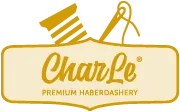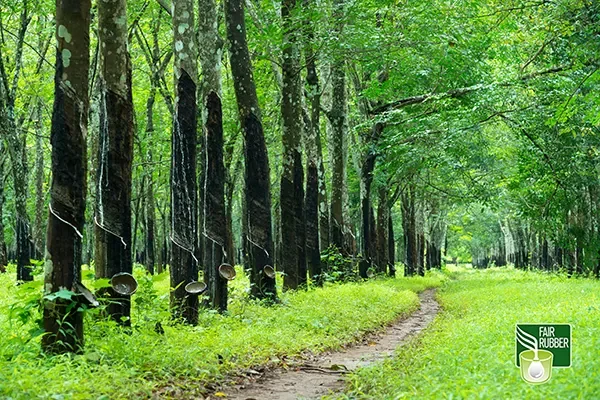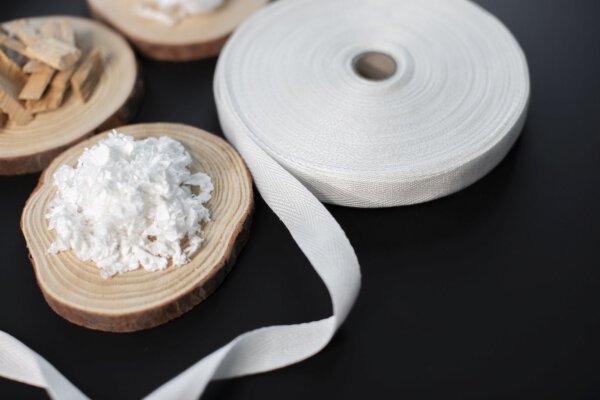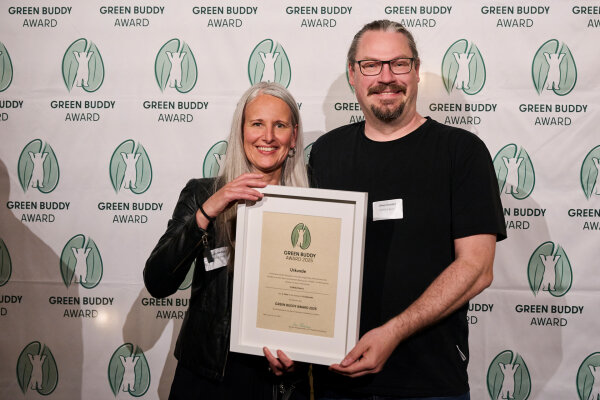CHARLE Berlin and Lenzing AG are introducing a new generation of plastic-free1 textile tapes: fully compostable, elastic tapes made from TENCEL™ Lyocell, TENCEL™ LUXE filament yarn, and natural rubber. The range is complemented by non-elastic variants made from pure TENCEL™ Lyocell.
The innovation is based on high-quality fibers from Lenzing AG and will be presented for the first time at Future Fabrics Expo 2025 in London – the leading international trade fair for sustainable material innovations.
These products set new standards in the field of sustainable textile accessories. The developed ribbons are completely plastic-free1 and offer a genuine alternative to synthetic materials such as polyester or elastane. In the underwear and lingerie segment in particular, they open up new opportunities for responsibly producing brands that are committed to uncompromising quality and environmental compatibility.

A touch of luxury
The tapes impress with their particularly soft feel, are skin-friendly and have a natural, subtle sheen that conveys a touch of luxury – a result of the high-quality TENCEL™ fibers from Lenzing. The combination with natural rubber also makes the elastic variants compostable, durable, and functional.2
Our goal was to develop an elegant, functional, and environmentally friendly solution for the fashion and textile industry. Together with Lenzing, we have succeeded in creating textile ingredients that support the transition to a circular textile economy.
Regeneration holistically conceive
We, CHARLE Berlin, are not only developers and trading partners, but also manufacturers. Production is carried out using renewable energy from photovoltaic systems – another consistent step toward a resource-saving textile industry. We supply designers, brands, and manufacturers worldwide with innovative, durable, and responsibly produced ribbons—with the aim of rethinking sustainability at the product level.
Both Lenzing and we consistently pursue strategies for environmental protection and the regeneration of natural resources, and actively take responsibility for our actions.
We are a member of Fair Rubber e.V. and the Circular Rubber Platform, where we are committed to strengthening the social and ecological use of natural rubber along the entire supply chain.
Lenzing manufactures Tencel™ Lyocell in an innovative closed-loop production process. This involves converting wood pulp into cellulose fibers. In this process, more than 99.8 percent of the solvent is recovered and returned to the cycle, resulting in virtually no waste. Tencel™ Lyocell fibers cause at least 50 percent less CO2 emissions and water consumption in production compared to conventional Lyocell.3
Traceability
Tencel™ Lyocell fibers are produced with molecular markers – an identification technique that guarantees the authenticity and traceability of the fibers.

Partnership-based cooperation on equal terms
Bernd Schleuchardt, BD Sr. Manager Apparel, Lenzing AG, emphasizes: „The development of elastic and non-elastic tapes made from TENCEL™ Lyocell, TENCEL™ LUXE filament yarn, and the use of natural rubber will become very important and interesting for the textile market. These materials open up new possibilities for sustainable product solutions – especially in the areas of underwear, sports, fashion, and technical textiles. In excellent and close cooperation with CHARLE, a sustainable natural product has been created that not only offers a high-performance alternative to conventional synthetic tapes, but also makes a decisive contribution to more environmentally friendly textile applications.“
A strong signal to the textile industry
Our collaboration stands for material innovation with attitude – and sends a strong signal to the industry: sustainability and aesthetics can be combined.

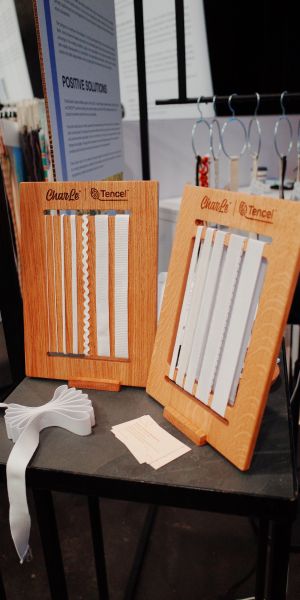

Foto: © TencelTM x CHARLE Berlin
1 Directive (EU) 2019/904
2 LENZING™ Lyocell fibers are certified by TÜV AUSTRIA as biodegradable in soil, fresh water, and the sea, as well as compostable under domestic and industrial conditions.
3Results based on Higg Materials Sustainability Index (v3.91)
